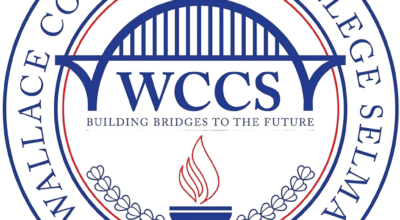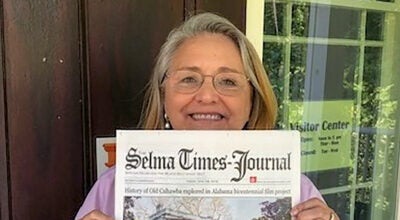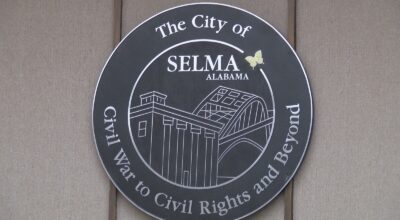Playing press and paying respect
Published 2:58 pm Tuesday, July 28, 2020
|
Getting your Trinity Audio player ready...
|
There are moments in a person’s life which stand out, in radiant technicolor, against the gray and drab backdrop that sets the scene for most of life’s days – such was the case as I set about in the usual way of covering the activities that unfolded on Selma’s streets Sunday, activities which would follow me home and continue to haunt and inspire me over the next few days.
The media circus surrounding the Selma leg of the tribute to civil rights powerhouse and longtime Georgia Congressman John Lewis began Friday afternoon as broadcast news outlets began constructing their makeshift newsrooms and satellites and print journalists milled about asking questions of mask-clad wanderers on the street, but this time it didn’t take away from the matter at hand – so often when the national media descends on Selma, they do so in an arrogant fashion that detracts from the stated reason for being here, but they rolled into the Queen City over the weekend somberly, obviously taken aback by the gravity of the situation they’d been called to document.
And why shouldn’t they? The loss of John Lewis, a living reminder of the myriad struggles that had to take place – and are indeed still taking place – in order to provide all Americans with the same rights, liberties and opportunities, is a blow to the nation’s collective midsection, particularly at a time when emotions are running high over the same conflicts that have raged for generations.
All of this was on my mind, and so much more, as I climbed the stairs in the Times-Journal building Sunday morning to take my perch atop the fire escape which overlooks the bridge – over an hour early, the waiting game played havoc on my plans and those of the other press writers below.
I climbed onto the roof of the building, following a dream the night before in which I fell from my perch trying to lean into a shot of Lewis’s final freedom voyage over the Alabama River, and took in the whole city – you could hear voices belting out “This Little Light of Mine” and the flutter of birds’ wings as they scattered from the rooftop to a nearby powerline and on into the heavens; you could see the people, no larger than a fingernail, idling up and down the streets, talking, mourning and remembering.
To be sure, the monotony of responsibility found its way to me – I had to assist the drone operators in getting the shot we wanted for today’s front page; I talked regularly with Times-Journal News Editor James Jones, who was stationed outside of Brown Chapel during the morning’s events, to keep tabs on when the procession would bend the curve onto Broad Street; I worked with visiting journalists, allowing them editing space inside the newsroom, and in general worked, as work is nothing if not work – but, as a journalist, one finds that work, emotion and history often unfold simultaneously, at least if one pays attention to the event and not just the covering of the event.
I drank five cups of coffee before the horse-drawn carriage and the flag-draped casket began its slow climb toward the Edmund Pettus Bridge – weeping could be heard, shouts of “Thank you, John” and “Good trouble” could be heard; outstretched hands extended beyond the barriers lining each side of the street, as if to touch the hem of his garment one time more before he was gone forever – and I shot dozens of photos, any one of which would be enough to show what happened.
Work resumed thereafter – uploading photos, shutting down the office – and I wound my way home where my wife and children had seen me on an NPR livestream of the event, my black-shirted frame leaning precariously over the edge of the metal staircase.
“Daddy,” my little girl asked. “Was Mr. John Lewis in the box?”
“He was, sweetheart.”
“Did he get out and talk?”
“No, baby. Mr. John Lewis can’t talk anymore.”
Saying that to my daughter, who was born on the 45th anniversary of the assassination of Dr. Martin Luther King Jr., who since learning about King in school has developed a keen interest in all facets of the Civil Rights Movement, particularly King and Rosa Parks, was difficult, because it was the first time my throat had let loose what my mind already knew – John Lewis can’t talk anymore; John Lewis can’t champion the fight for jobs and freedom anymore; John Lewis can’t loudly call us to never give up or give in.
But somehow, he speaks to us now just as clearly as ever – John Lewis can’t call for equal rights anymore, but we can; John Lewis can’t fight and march anymore, but we can.
Not only can we, but we must.
Unlike so many of my journalistic counterparts, I never had the opportunity to look in John Lewis’s eyes or hear him speak directly to me and yet I hear his voice as if, in fact, it is speaking directly to me.
“I appeal to all of you to get into this great revolution that is sweeping this nation. Get in and stay in the streets of every city, every village and hamlet of this nation until true freedom comes, until the revolution of 1776 is complete.”
I’m listening and you should be too.





